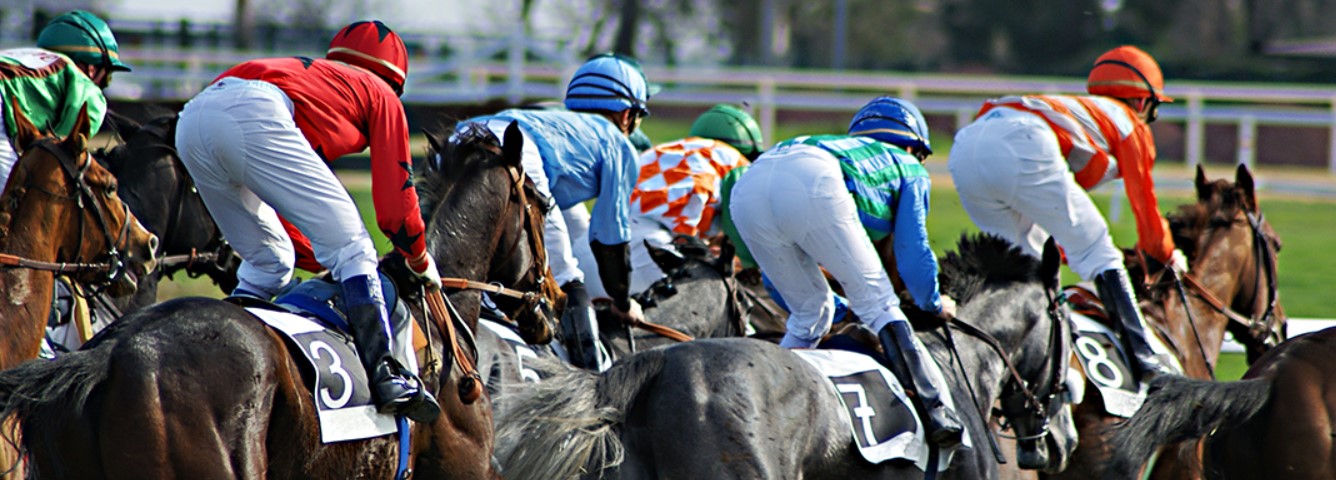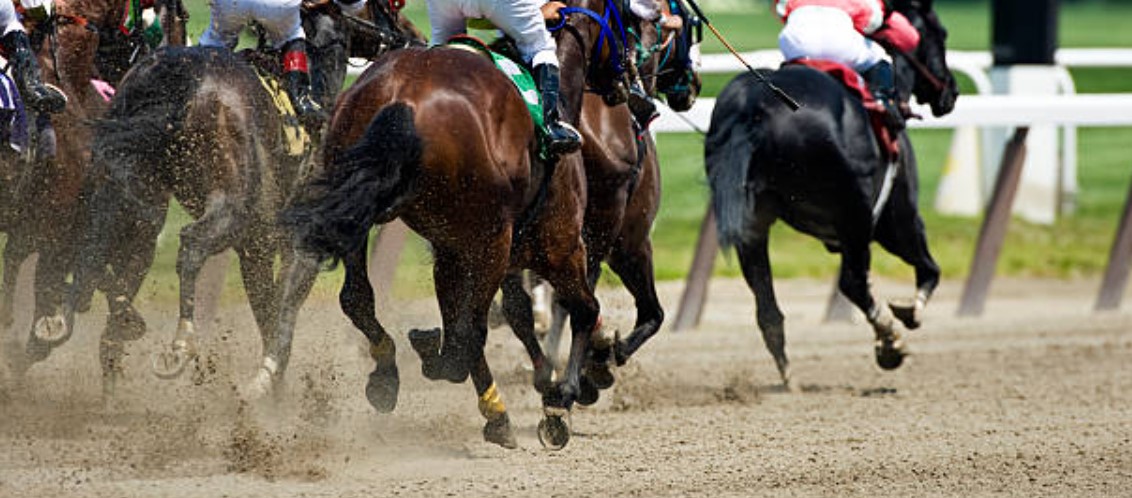Horse Racing Betting Tips For Beginners
Horse racing is a thrilling sport with a rich history, and betting on horse races adds an extra layer of excitement. However, for beginners, navigating the world of horse racing betting can be daunting. This guide will provide essential horse racing tips to help you get started and develop a successful horse racing betting strategy.
When diving into horse racing, it’s crucial to understand that success doesn’t come overnight. You need to be patient, do your research, and follow a structured approach. Let’s explore the top horse racing tips to help you make informed decisions and increase your chances of winning.
Use Smart Bankroll Management
One of the fundamental aspects of betting on horse races is managing your bankroll effectively. Bankroll management is a critical horse racing strategy that ensures you don’t run out of money before you even have a chance to win.
Start by setting a budget for your betting activities. This should be an amount you can afford to lose without impacting your daily life. Stick to this budget and avoid chasing losses by betting more than you can afford.
A good rule of thumb is to bet only 1-2% of your bankroll on a single race. This approach allows you to weather the ups and downs of betting without depleting your funds quickly. By using smart bankroll management, you can enjoy betting on horse races for a longer time and increase your chances of hitting a big win. If you’re looking for valuable tips for horse racing betting, it’s essential to consider the horse’s recent form and the jockey’s performance.

Check Horse’s Recent Track Record
When considering which horse to bet on, always look at its recent track record. This is one of the best horse racing tips you can follow. A horse’s performance in its last few races can give you valuable insights into its current form and potential for success in upcoming races.
Look for horses that have been consistently performing well or showing improvement. Pay attention to factors such as finishing positions, times, and the quality of competition they faced. Horses that have been competing against tougher opponents and still performing well might have a better chance of winning when facing easier competition.
Additionally, consider the distance of the race and how the horse has fared in similar conditions. Some horses perform better at certain distances or on specific types of tracks. By examining the horse’s recent track record, you can make more informed betting decisions. Many websites offer free horse racing tips that can help you get started without spending a dime.
Research Jockey History
The jockey riding the horse is another crucial factor to consider. Researching jockey history is a key part of developing a solid horse racing betting strategy. Experienced jockeys with a track record of success can significantly influence the outcome of a race.
Look for jockeys who have consistently performed well, especially on the type of track and distance of the race you’re betting on. Jockeys with a good understanding of the horse they’re riding and the ability to navigate different race conditions can make a big difference.
Consider the relationship between the jockey and the horse. Some jockeys have a better rapport with certain horses, leading to improved performance. By researching jockey history, you can identify which jockeys are likely to give their horses the best chance of winning.
Research Trainer History
Just as important as the jockey is the horse’s trainer. A trainer’s expertise and experience can have a significant impact on a horse’s performance. Researching trainer history is another essential tip for horse racing betting. For those new to the sport, sometimes the best advice comes from just horse racing tips shared by experienced bettors.
Look for trainers who have a history of success, particularly with the type of race and conditions you’re interested in. Trainers who consistently produce winning horses are likely to have a solid training regimen and a keen eye for talent.
Consider the trainer’s recent performance as well. Trainers who have been on a hot streak or have a high win percentage with their horses are worth paying attention to. Additionally, some trainers specialize in specific distances or types of races, so align your bets with trainers who excel in those areas.
By including trainer history in your research, you can make more informed betting decisions and increase your chances of success.
Track Conditions
Track conditions play a vital role in horse racing and can significantly impact a horse’s performance. Understanding how different track conditions affect horses is an important aspect of any betting strategy for horse racing.
Tracks can vary in terms of surface type (dirt, turf, synthetic) and condition (fast, sloppy, firm, yielding). Some horses perform better on specific surfaces or under certain conditions. For example, a horse that excels on a firm turf track might struggle on a wet, sloppy dirt track.
Always check the track conditions on race day and adjust your bets accordingly. Look for horses that have a proven track record on similar surfaces and conditions. By considering track conditions, you can avoid placing bets on horses that might struggle and focus on those with a higher likelihood of success.
Why Is Class Important For Betting On Horse Races?
Class in horse racing refers to the level of competition that a horse has been racing against, and it is a critical factor to consider when placing your bets. Understanding class can help you gauge a horse’s true abilities and potential for success in a given race. When a horse moves up or down in class, its performance can change significantly due to the variation in the quality of competition.
Horses are categorized into different classes based on their past performances, earnings, and the quality of races they have competed in. These classes range from maiden races, where horses that have never won compete, to graded stakes races, which feature the best horses in the sport. Between these extremes are various levels, such as claiming races, allowance races, and ungraded stakes races. Each level represents a different caliber of competition.
When a horse is stepping up in class, it means it will be racing against tougher opponents. This can be challenging for the horse and can affect its performance negatively if it is not yet ready to compete at that higher level. Conversely, when a horse drops down in class, it may find the competition easier and perform better. This is why class drops are often seen as positive indicators for bettors.
Additionally, a horse’s ability to handle a class rise can sometimes signal untapped potential. Horses that can successfully move up in class and continue to perform well often have more inherent talent and better conditioning. Conversely, horses that struggle to compete when moving up in class may not yet be ready to face more challenging competitors.
Understanding class also involves looking at the conditions of the race. Some races have conditions that restrict entries to horses that meet certain criteria, such as non-winners of a certain number of races or earnings limits. These conditions can significantly impact the quality of the field and are essential to consider when assessing a horse’s chances.
By paying close attention to the class of races a horse has been competing in and how it has performed in those classes, you can make more informed betting decisions. This aspect of horse racing betting tips helps you avoid overestimating a horse’s chances in a tough field or underestimating it in a weaker one. Ultimately, considering class can lead to more strategic and successful betting.

How To Use Horse Running Styles For Informed Betting
Horses, like athletes, have different running styles that can greatly influence the outcome of a race. Understanding these running styles is one of the best horse racing tips for making informed bets. The three primary running styles in horse racing are front-runners, stalkers, and closers, each with its own strategic advantages and challenges.
Front-runners are horses that prefer to take the lead right from the start of the race. These horses set the pace and try to maintain their lead all the way to the finish line. Betting on a front-runner can be advantageous in races with few other speed horses, as they may be able to control the pace and conserve energy for a strong finish. However, front-runners can be at a disadvantage in races with multiple speed horses, as the competition for the lead can be exhausting and leave them vulnerable to being overtaken in the final stretch.
Stalkers, on the other hand, run just behind the leaders, keeping a close eye on the front-runners. These horses wait for the right moment to make their move, usually in the middle stages of the race. Stalkers can benefit from a fast pace set by front-runners, as they conserve energy by not pushing for the lead early. When the leaders start to tire, stalkers can take advantage and surge ahead. Betting on stalkers can be strategic in races where you expect a fast early pace.
Closers are horses that start the race from the back of the pack and rely on a strong finishing kick to overtake the leaders in the final furlongs. Closers are exciting to watch, as they often make dramatic moves in the stretch run. However, their success depends heavily on the race pace. If the pace is too slow, closers may not have enough ground to make up the deficit. In contrast, a fast pace that tires out the front-runners and stalkers can set up perfectly for a closer to swoop in for the win.
Understanding the running style of each horse in a race helps you predict how the race might unfold. You can look at past performances to identify a horse’s preferred running style and consider how that style matches up with the race conditions and the other competitors. For instance, a race with several front-runners might favor a closer, while a race with a single front-runner and many closers might be ideal for a stalker.
By incorporating running styles into your horse racing betting strategy, you can make more informed and strategic bets. This approach allows you to anticipate how a race is likely to develop and identify horses that are well-positioned to take advantage of the race dynamics. Combining this knowledge with other horse racing tips, such as evaluating class and track conditions, enhances your overall betting strategy and increases your chances of success.
Conclusion
Betting on horse races can be a rewarding and exciting experience, especially when armed with the right knowledge and strategies. By following these horse racing betting tips, you can improve your chances of success and enjoy the thrill of the races.
Remember to use smart bankroll management to protect your funds and extend your betting activities. Check the horse’s recent track record, research jockey and trainer history, and consider track conditions before placing your bets. Understanding the importance of class and using horse running styles can also enhance your betting strategy.
With these top horse racing tips, you’ll be well on your way to making more informed and strategic bets. Whether you’re a beginner or an experienced bettor, these tips can help you navigate the world of horse racing betting with confidence and enjoy the excitement of the sport. Happy betting!

